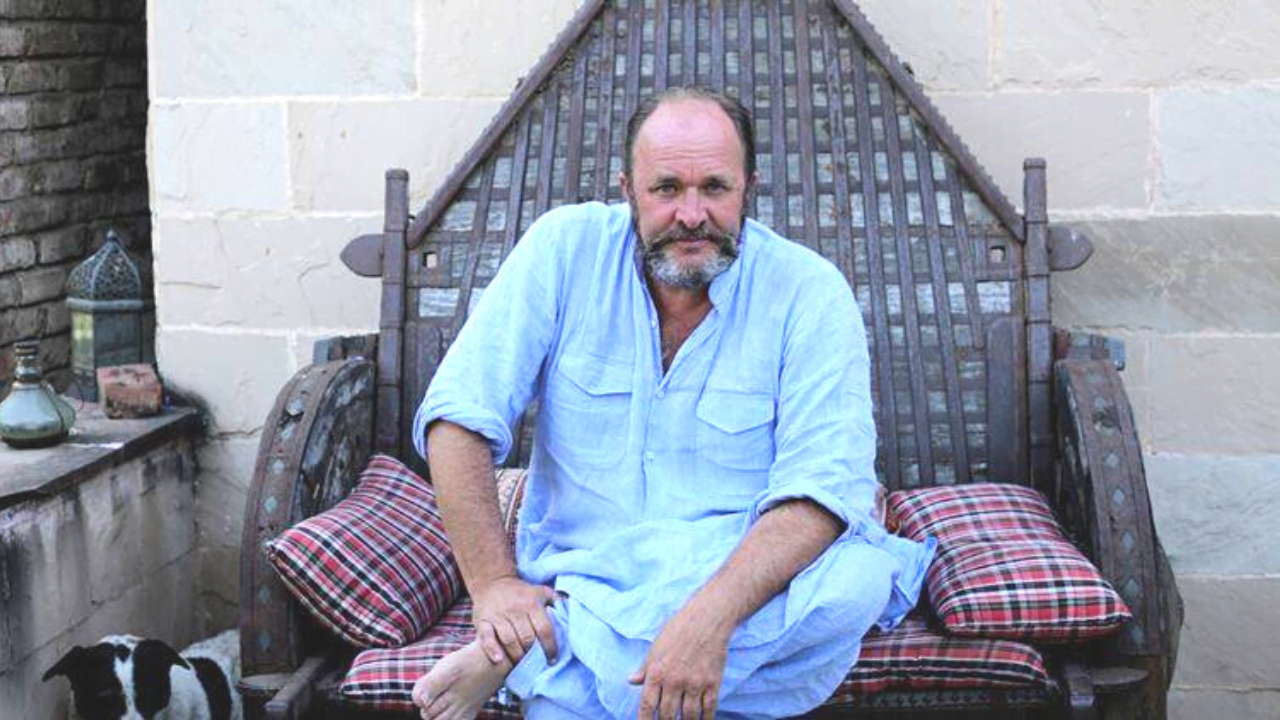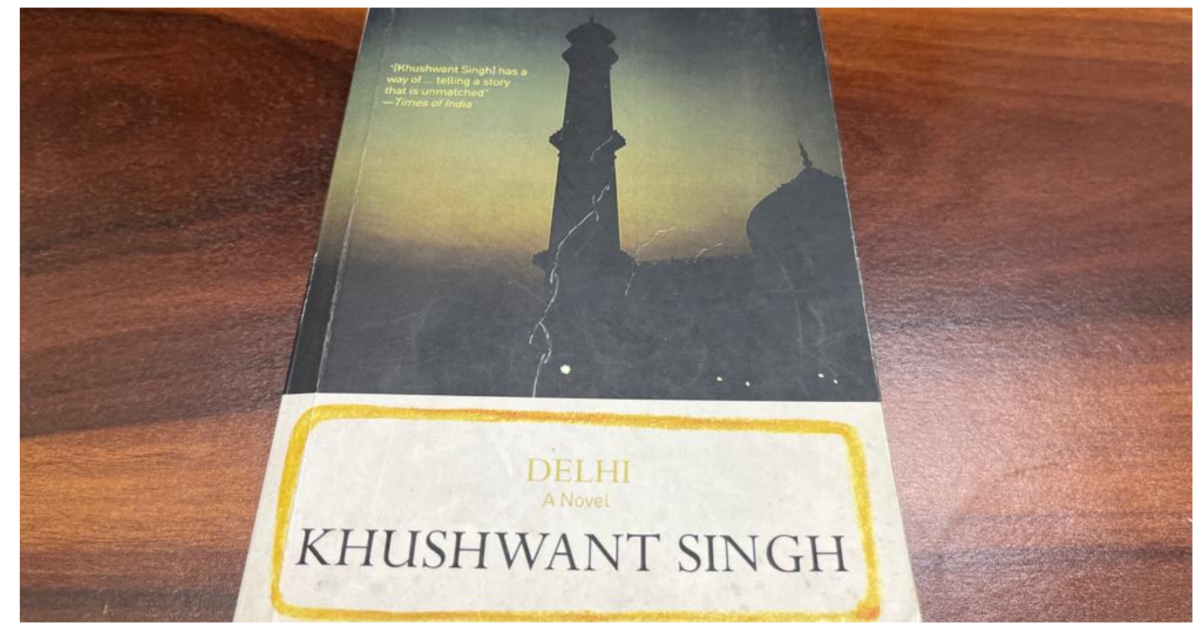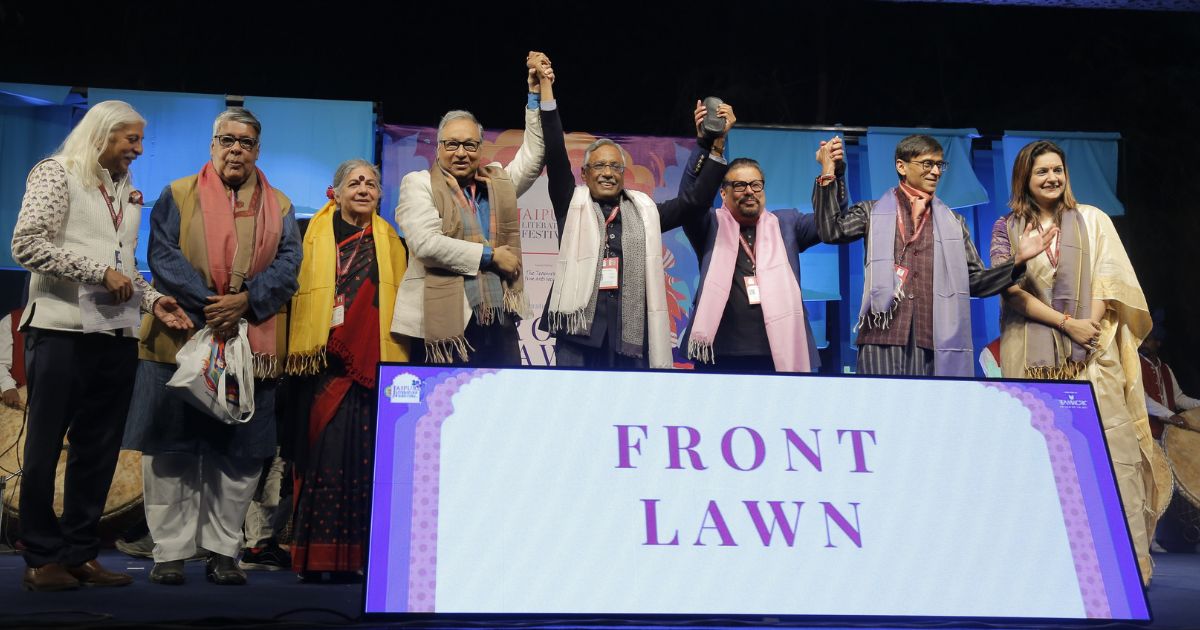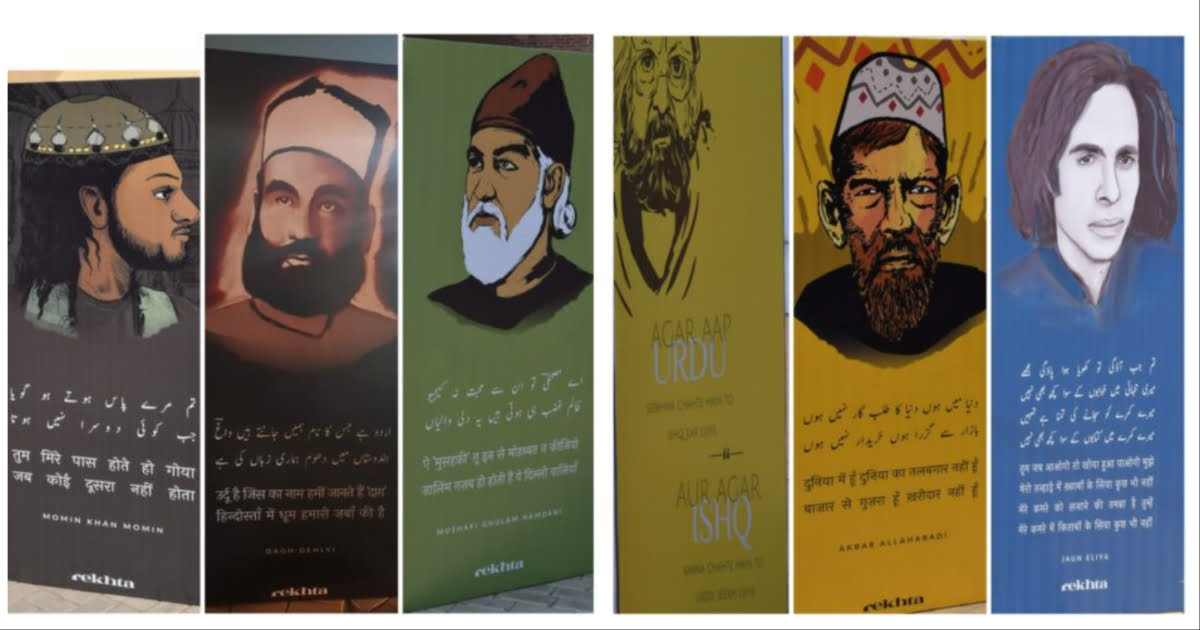We know that he does a lot of intense research work before writing his books. But, William Dalrymple went an extra mile and surprised us by showing a tiny crystal bottle of ittar (natural perfume oil derived from botanical sources), which he had brought from some remote location in Uttar Pradesh while researching for his forthcoming book, The Anarchy. The book will be a detailed narration of the history of South Asia during the period 1739-1803 which witnessed the collapse of the Mughal imperial system and the militarisation. This was also the time of the rise of the East India Company.
The moment, he entered the terrace garden of Hotel Taj Mahal, the venue for the curtain raiser of Jaipur Literature Festival 2016, a photographer asked him for a solo picture. The way he posed, it seems as if he was being clicked for the first time. That is William Dalrymple for you — a raw, witty, and sweet person, full of in-depth knowledge and innocence.
William Dalrymple’s love affair with Delhi
The writer has documented his love affair with India, centering on Delhi — a city with “a bottomless seam of stories” — in his travelogue, City of Djjins.
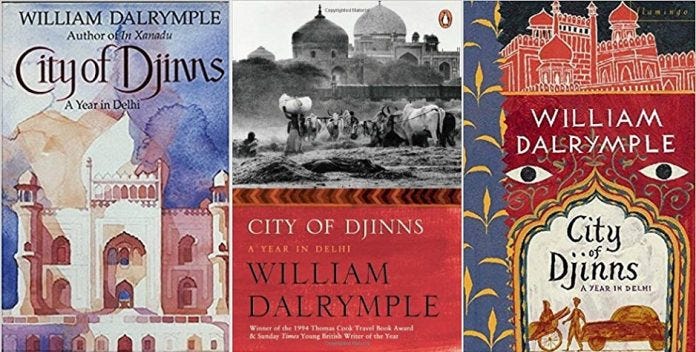
Shaped more like a novel than a travel book, he and his wife encounter a teeming cast of characters — his Sikh landlady, taxi drivers, customs officials, and British survivors of the Raj, as well as whirling dervishes and eunuch dancers (“a strange mix of piety and bawdiness”). In the book, Dalrymple describes ancient ruins and the experience of living in the modern city.
He goes in search of the history behind the epic stories of the Mahabharata. He also finds evidence of the city’s violent past and present-day — the 1857 mutiny against British rule; the Partition massacres in 1947 and the riots after the assassination of Indira Gandhi in 1984. But, now, he feels that Delhi has changed a lot. “The roads are better. We have fancy malls and better connectivity,” he shared. However, the increased pollution in the city saddens him.
“When I first came to Delhi, there was lack of infrastructure and facilities. Now situations have improved. There are better roads, malls and good transportation, but the pollution is quite depressing,” Dalrymple pointed out.
Being a historian, he believes that, at times, history should be reinvented and re-looked at from different perspectives. His main interests have always been in Hinduism, Buddhism, Jainism, and early Eastern Christianity.
William Dalrymple’s experience with JLF
His experience with Jaipur Literature Festival (JLF) over all these years has been fantastic and this time he believes that it’s going to be the best festival of all. “We have got a completely different set of authors, and the authors are the festival. It is the best range we have ever had,” he said.
The line-up for the 2016 edition is filled with winners of awards such as the Booker, the Pulitzer, and Samuel Johnson among others. Dalrymple elaborated, “We try and get a clean sweep of all the big prizes plus an entirely subjective personal pick of our favourite classics.”
Caribbean writers including Marlon James (Man Booker Prize winner) and Kei Miller (Forward Prize awardee) from Jamaica and several other authors from Central America are also included. “The edition seeks to serve as a platform that promotes the development of thoughts and ideas and respects different points of view,” said Sanjoy Roy, producer of JLF.
On the subject of growing intolerance, Sanjoy shared his point of view, “People should not be intolerant; they may disagree with each other’s opinion, but that doesn’t mean one is wrong and other is right and vice-versa. Everyone has the freedom to look at things and situations from their own perspective. Some might agree or disagree but everyone must respect each other’s opinion.”
He added, “I think, we should not be intolerant — we may not agree with each other’s opinion, but that doesn’t mean if you’re saying something, I would say you’re wrong or I’m right. Everyone has their own perspective to look at things and situations, we might agree or disagree but we must respect each other’s opinion.”

